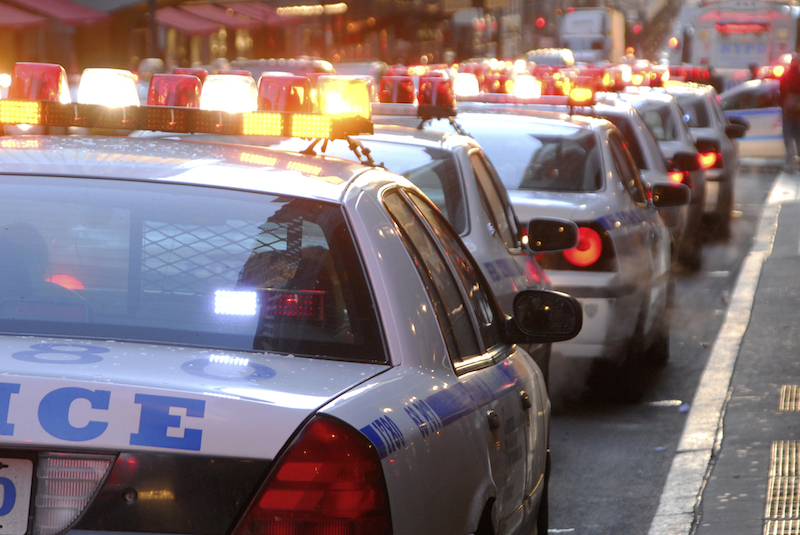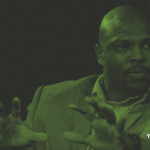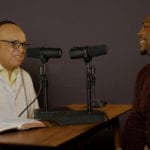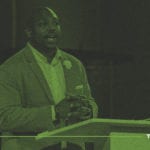Brandon Murphy is a pastor and deputy sherriff in a large Southern city. He has been in law enforcement for five years in a reserve capacity. He holds an MDiv and a BA in religion. Brandon is married with three children.
What do you do every day?
I’m a pastor at a mid-sized suburban church as well as a deputy sheriff in the same area. By day, I have the joy of leading people to follow Jesus. By night, I’m a public servant, performing the standard duties of a patrol officer—from answering 911 calls to patrolling to providing presence in the community to assisting people.
One thing I really enjoy about being a law enforcement official is that every call is different. In one night, I can go from changing a tire to responding to a fire to catching a prowler in someone’s backyard. But what I do most nights is make traffic stops. Traffic stops are how you control crime in an area.

That’s an interesting thought. How exactly do traffic stops control crime?
We have data that clearly show how traffic stops and calls for service are inversely related—the areas with the most stops are also the ones with the lowest crime rates. Police presence in a neighborhood acts as a deterrent to crime. The higher our visible presence, the fewer break-ins, robberies, and violent crimes in a community.
Does this practice open the door for profiling?
Profiling is policing—not on the basis of race or some arbitrary marker, but in the sense of the officer knowing his or her beat. I know my beat well enough to know when something is out of place. If I see something amiss, I look for reasonable suspicion to make a stop.
One night, for example, I was patrolling in an economically depressed part of town, and a brand-new, fully loaded Tahoe drove by. I know this neighborhood really well, and there are not a lot of cars like this. So I began to look for reasonable suspicion. I saw they didn’t have a tag light, and that was sufficient reasonable suspicion to pull the car over. To be clear, I rarely ever give tickets for missing tag lights; I usually let the drivers off with a warning since they don’t know the light is out.
But when I pulled this car over, it was occupied by three males and a female, and I sensed that something wasn’t right. So I took their IDs and called it in to check for warrants. Before the information came back, the dispatch called backup to my location. It turned out two people in the car were sex offenders. The female had an active warrant, and the driver was recently released from prison and on parole. Before I pulled them out, my partner noticed a pistol in plain view. That guy could have shot me dead in the street. It was by the grace of God he didn’t.
Where else do you see the brokenness of the world play out in your work?
By and large, the things we see are not fun, exciting, or adrenaline-filled. They are sad. The amount of abuse of women and children is horrific. Co-dependency on abusive substances is often involved. It’s not uncommon to walk into a house and see the children of methamphetamine and cocaine users left to fend for themselves. Criminals are so desensitized to their actions that it reminds me of Jeremiah 17:9; because their hearts are wicked, they deceive themselves into thinking their actions are justified.
What is your greatest fear on the job?
My greatest fear is to be labeled a racist in exercising my job. I can’t imagine doing my job and being labeled a racist. There would be nothing worse than trying to serve well and make it home alive to my wife and children only to be labeled a racist.
In your opinion, what is the way forward for the church?
Our justice system isn’t perfect. And sometimes police make mistakes. Sometimes those mistakes are purposeful since they have hatred in their hearts because of sin. But I believe those occasions are rare. Historically speaking, policing in America has been a tragic profession. We will always be trying to undo what our grandparents did. We must be diligent to give people an area for healthy dialogue involving available facts and validated feelings. Whites need to recognize that millions of people in this country have not benefited from the same background and privilege that they have. And blacks need to recognize that not all police officers are bad.
Editors’ note: TGCvocations is a weekly column that asks practitioners how they integrate their faith and their work. Interviews are edited and condensed. *Brandon Murphy is a pseudonym.
Is there enough evidence for us to believe the Gospels?
 In an age of faith deconstruction and skepticism about the Bible’s authority, it’s common to hear claims that the Gospels are unreliable propaganda. And if the Gospels are shown to be historically unreliable, the whole foundation of Christianity begins to crumble.
In an age of faith deconstruction and skepticism about the Bible’s authority, it’s common to hear claims that the Gospels are unreliable propaganda. And if the Gospels are shown to be historically unreliable, the whole foundation of Christianity begins to crumble.



































